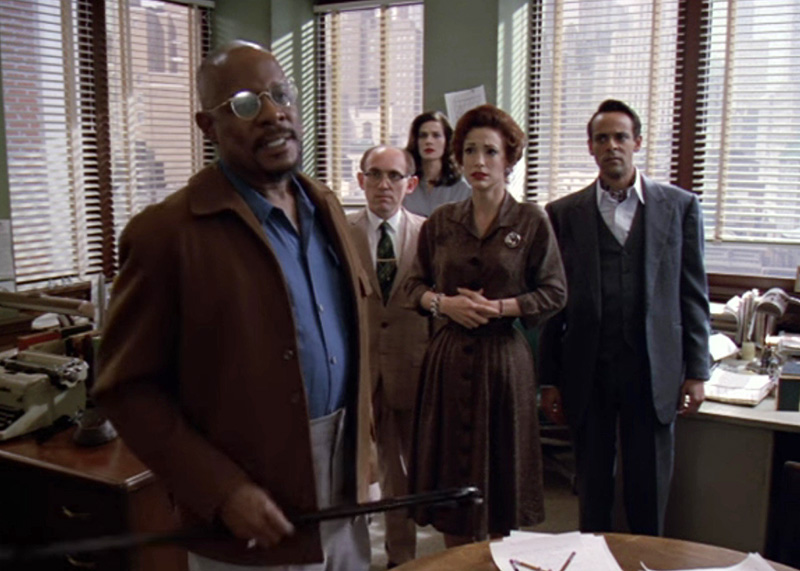
Star Trek, as a franchise, has always been at the forefront of addressing societal issues, often using the veil of science fiction to tackle real-world problems. Deep Space Nine (DS9) is no exception, and among its many standout episodes, “Far Beyond the Stars” is widely considered one of the most powerful and pivotal episodes of the series.
Though it takes place entirely outside of the show’s regular spacetime setting, the events that unfold in 1950s New York City speak directly to the core values at the heart of Star Trek.
In examining racism, injustice, and the power of human imagination, “Far Beyond the Stars” touches on themes that resonate through all eras of Trek history while crafting a thought-provoking story that stands tall on its own merits.
A Bold Statement on Racism
“Far Beyond the Stars” breaks away from the traditional Star Trek setting, transporting Captain Sisko into the life of Benny Russell, a 1950s science fiction writer.
This narrative choice was bold, as it took the series out of space and into the heart of 20th-century America.
By doing so, the episode was able to directly confront issues of systemic racism and discrimination without the metaphorical buffer that sci-fi often provides.
We see the immense talents of Benny Russell, an African American sci-fi writer in the 1950s, constrained by pervasive prejudice from the society around him.
His passionate pursuit of space-age stories showcases the power of imagination and diversity, themes that Star Trek has championed since its inception. Yet Russell’s experience shows how easily such creativity can be stifled by cruelty and intolerance.
By centering the story on Russell’s struggles, DS9 makes a bold statement on how racism has crushed many visions and voices over time.
The allusions to pioneer Trek stars like Nichelle Nichols underline how groundbreaking the show’s inclusive cast was for its era, and how much still needed to change in society.
The episode conveys a dream of a future where creativity and ideas can flourish unburdened by bigotry.
The Strength of the Human Spirit

Beyond its condemnation of racism, “Far Beyond the Stars” is ultimately a tribute to the resilience and vision of the human spirit.
Though beaten down repeatedly, Russell maintains his passion and belief in the power of his writing to inspire people.
His conversations with other characters, like fellow sci-fi author Herbert Rossoff, showcase the hope they find in speculative fiction during trying times.
The episode suggests that no matter how difficult the circumstances, human beings can find solace and meaning through the stories they tell.
By creating new worlds in our imagination, we can craft a better vision of the future that helps pull society forward.
The cathartic depiction of Russell’s internal voyage shows how creative expression enables people to transcend present troubles and keep striving for better days ahead.
A Timeless Meditation on Justice

At its core, “Far Beyond the Stars” wrestles with the nature of justice itself. Does progress require forceful confrontation with society’s flaws?
Is it right to punish someone for their actions even if the system is rigged against them? Benjamin Sisko ponders these questions as he inhabits Benny Russell’s consciousness, bringing a 24th century moral perspective to 20th century injustice.
The episode’s messages about standing up to prejudice shine light on moral questions that still challenge our world today.
While we have made undeniable progress in many ways, systemic biases and abuses have far from disappeared.
Russell’s experience prods us to keep fighting bigotry and discrimination wherever they persist. Though centuries may pass, the struggle for justice remains timeless.
A Defining Episode of Trek
“Far Beyond the Stars” distills many of the most integral themes of Star Trek into a single powerful story.
It celebrates the inclusive, multicultural future Star Trek has always envisioned. It probes difficult issues of justice and morality that the franchise has wrestled with from The Original Series to today.
And it pays tribute to the power of human creativity and radical imagination. For a series that has pushed social boundaries and philosophical questions since its inception, this episode stands out as an especially definitive chapter.
As Star Trek continues to inspire new generations of fans, “Far Beyond the Stars” remains a prime example of what makes this legendary series so impactful.
At its best, Trek holds a mirror to our world, confronting pressing social issues while painting a picture of what moral progress could look like.
This classic episode encapsulates that unique, timeless spirit. Two decades later, its messages ring louder than ever.

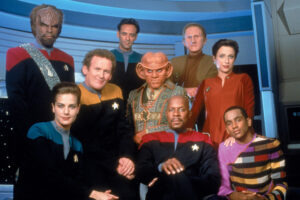

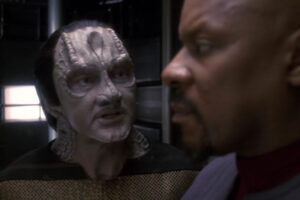
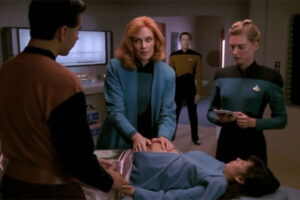
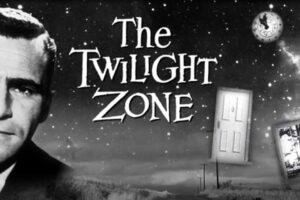
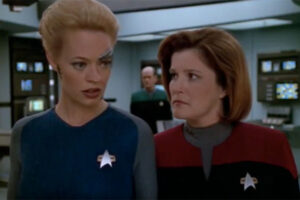
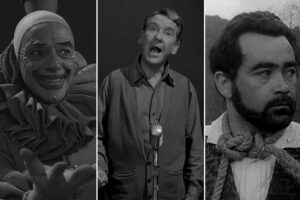

Leave a Reply